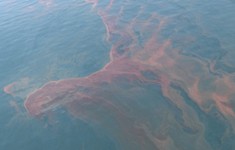
Researchers from the University of California, Davis, as well as facilities in Louisiana and South Carolina, published the findings in the April 22 issue of the journal Environmental Science and Technology.
They found that Gulf killifish embryos exposed to sediments from oiled locations show developmental abnormalities, including heart defects, delayed hatching and reduced hatching success. They also noted that species that share similar habitats to killifish — including blue crabs, shrimp, oysters, redfish, speckled trout, and flounder — may be at risk of similar effects.
“These effects are characteristic of crude oil toxicity,” said Andrew Whitehead, co-author of the study and assistant professor of environmental toxicology at UC Davis. At the same time, the killifish that the researchers studied are safe to eat.
“We did the chemical testing. They don’t have very high levels of chemicals in their body. This is good news for the seafood industry,” Whitehead told SeafoodSource.
However, the study is not the best news for BP and Deepwater Horizon. “We have gotten pushback from BP. They have a vested interest in a discovery that there were not many effects on the environment from the oil spill,” Whitehead said.
The researchers looked at the oil spill’s impacts on killifish, because they don’t swim far from where they are born, and they interact with the sediment, where oil tends to settle.
While the study predicts long-term impacts on fish reproduction, researchers don’t know how long it will take for those effects to become apparent. “The Exxon Valdez [oil spill] is a good guide for the timeframe — some species took a generation or two for the effects to become apparent,” Whitehead said.





